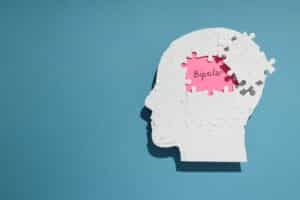Relationships are arguably one of the most critical aspects of your everyday life. Whether it be family, friends, or romantic partners, you inherently thrive off relationships.
There are many reasons why maintaining healthy relationships can be complicated. Maybe you have recently been involved with a close friend. It may be hard to relate to people around you. Your relationship with yourself influences how you relate to others.
The ability to be self-aware and socially aware can make all of the difference in your self-perception and how others perceive you. How your loved ones and counterparts experience you can play a significant role in the success of your relationships.
Suppose you are struggling with issues such as substance abuse, alcohol abuse, or poor mental health. In that case, your interpersonal relationships can be a large part of your recovery journey and overall well-being. The relationship between family and wellness is significant.
Self-awareness can impact your life and interpersonal relationships in a number of positive ways. However, before coming to terms with the positive impact of self-awareness on your relationships, it is essential to assess whether or not you are self-aware and how you can start practicing self-awareness for the sake of your relationships.
Questions to Asses Your Self-Awareness
Here are some questions you can ask yourself to assess your self-awareness:
• Would my loved ones consider me to be a good communicator?
• Have I ever received any complaints or constructive criticism surrounding my communication skills?
• Do I overstep set boundaries of friends, family, or loved ones?
• Have my loved ones made requests of me that I have failed to comply with?
• How do others perceive me?
• Has my family had complaints about me that I have ignored?
• During conversations, do I listen just to respond or care about what the other person has to say?
• How can I be a better friend, partner, family member, or parent?
• Is my behavior often erratic, irritable, or angry?
• Do I have any addictions or compulsions which are influencing this behavior?
Work on Self-Awareness Every Day
If you have had trouble answering any of the above questions, you may need to improve your self-awareness. While some people are naturally more self-aware than others, it is a skill that can be improved through practice.
The bulk of everyday self-awareness is curated through trial and error. You can find ways to implement self-awareness into your daily life and relationships. Try to start small.
Consider asking your spouse, friends, or family if you hold any habits which upset them or compromise your relationships. The people in your life may respond by telling you about areas of your life that need to change. This may cause you to feel vulnerable or exposed initially; however, it is often in the best interest of your relationships and overall mental health.
Listen honestly to what they are saying and why they may be saying it. Ask for concrete examples if you are unclear about when your behavior may be problematic. Get feedback from other people about these issues. If an issue has been identified, seek professional help to guide you through the process of changing your behavior.
Things to Keep in Mind Regarding Your Relationships
It’s crucial to keep the following things in mind when it comes to maintaining healthy relationships:
#1. You Will Make Mistakes
No relationship is perfect or without fault. Whether it be how you relate to your parents, partner, children, or friends, conflict is a normal and natural part of how you relate to others in your life. The sooner you accept this, the more seamless it will be to implement self-awareness into these relationships.
The reality is that you will make mistakes in your relationships with your loved ones. In newer relationships, you may make many mistakes and often. The trust you build with those around you is developed through communication and honesty.
#2. Raw Communication May Breed Defensiveness
When discussing your behaviors, attitudes, or habits, it is easy to become defensive. It is never easy to hear about how you may have dropped the ball or caused someone else pain. It can be increasingly difficult to hear someone list your mistakes or how you have negatively impacted them.
For the sake of your relationship, it is vital to be as open-minded as possible in scenarios like this. Defensiveness will not benefit the conversation or connection in any way. It can also deter you from healing.
#3. You Were Made for Community: You Are Not Alone
If you find your relationships suffer, there is help and community for you. At Southern California Sunrise Recovery Center, your wellness and relationships are essential. The center has staff and professionals committed to your recovery, wellness, and overall mental health.
At Southern California Sunrise Recovery Center, we understand that navigating challenges concerning self-awareness may be challenging, but it is never something that you have to confront alone. Resources, community, and treatment programs will inevitably help you feel less isolated. If you find yourself in a place of solitude, desperation, or overall poor mental health, there is assistance for you. Although it may be tempting to try to go it alone, understand that struggling in interpersonal relationships is an issue faced by many working to manage their mental health.
Your capability to rise through the difficulty of this time is within you. It will allow you to process your thoughts alongside a companion. You can be encouraged and affirmed while learning to trust yourself and maintain healthy relationships with others again. There is hope; just call (714) 942-4143.







